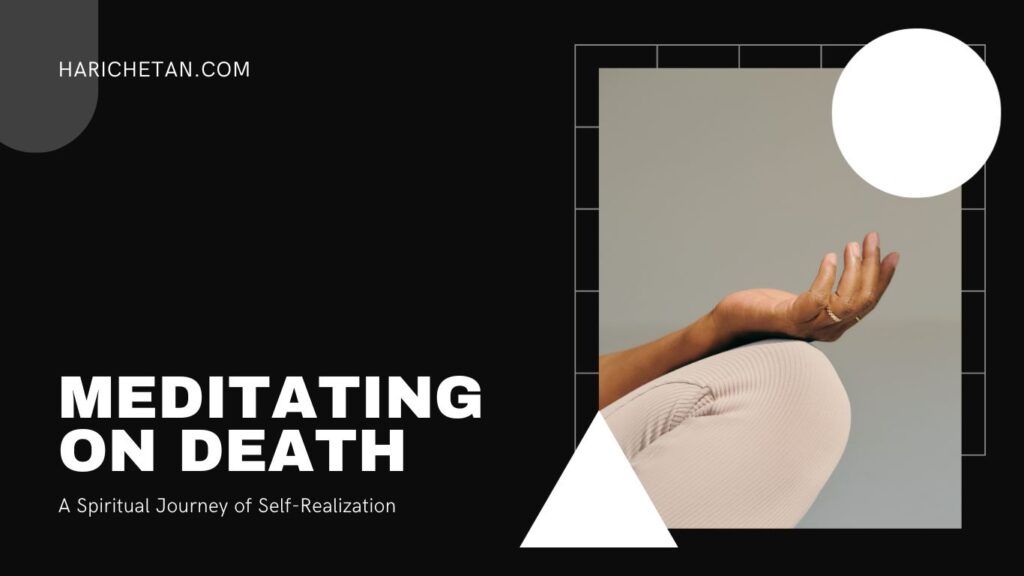
# Enhancing Mindfulness Through Mortality
Reflecting on mortality — commonly known as *memento mori* (“remember you must die”) — confronts us with one of life’s most challenging realities: our time on earth is limited. Although death and mindfulness may seem to be opposites, with death representing a definite end and mindfulness focused on the present moment, these concepts are more closely connected than we might think. In truth, contemplating the fleeting nature of life can significantly boost our mindfulness, urging us to live more intentionally and completely in each moment.
### The Life-Death Paradox
At a superficial level, contemplating death can evoke fear, sadness, or existential anxiety. However, what if recognizing death allows us to remove the distractions of life and uncover what truly matters? Embracing our own impermanence presents a powerful awareness, one that has the ability to infuse clarity and purpose into our daily existence.
Picture a moment spent alone in a serene space when the idea strikes you: “One day, I will no longer exist.” What feelings arise from this thought? Fear? Sadness? Or perhaps an increased appreciation for the invaluable nature of the present? This insight serves as a reflection of our fragile reality — not to elicit despair, but to illuminate the richness and transitory nature of our lives.
### The Delicate Beauty of Impermanence
“Nothing lasts forever.”
How often have we encountered that saying, dismissed it, and carried on? But what if we genuinely embraced this truth? Everything surrounding us — our routines, our technology, and even the air we breathe — is temporary. By accepting this impermanence, we cease to take the present for granted. This understanding welcomes mindfulness, encouraging a deeper appreciation for the moments we often overlook or disregard.
Impermanence should not be resisted but welcomed, as it enables us to be fully present — recognizing the brittleness of existence and the transformative power of each breath.
#### Question for Reflection:
– Are you gripping too tightly onto things beyond your control?
By recognizing that nearly all aspects of life are outside our control — and will inevitably change or vanish — we not only attain a sense of freedom but also naturally begin to engage in mindfulness. The more we relinquish, the more liberated we feel to embrace life as it unfolds.
### What Truly Matters?
Life is cluttered with inconsequential distractions — from endless meetings to minor daily annoyances. Yet when we face the fact of our mortality, these distractions diminish, allowing what truly matters to emerge.
Imagine your life flashing before your eyes like a highlight reel. Which moments would stand out? Are they filled with continuous work pressures and mundane responsibilities, or do they consist of real joy, connection, and love? When we recognize our limited time, we discard the non-essential and focus on the foundational elements of our existence. Here, mindfulness becomes a means of concentration — allowing us to cherish the significant while dismissing what is merely background noise.
Awareness of death prompts us to reevaluate how we allocate our time and energy — propelling us to live with greater deliberation. Each moment transforms into a conscious choice to engage with what truly matters.
### The Illusion of Control: Ego’s Challenge
Much of our daily anxiety arises from the mistaken belief that we can control life — that we can tightly grasp onto things or people, or stave off the inevitable changes that time brings. However, death invites us to see the reality: we have little control.
The more we meditate on this truth, the fainter the ego’s tremors become. The ego tells us: “I need more,” “I can’t lose control,” and “I will last forever.” Yet the reality remains: life is in perpetual change, and our control is extremely limited.
By facing this reality and letting go, mindfulness shifts from striving to control life’s outcomes to experiencing life in its authentic and unpredictable state. Paradoxically, this brings us to be more present, vibrant, and engaged in the experiences we are currently having.
#### A Thought:
– How much of your everyday stress arises from attempting to resist the flow of inevitable change?
Instead of battling or ignoring life’s transience, mindfulness encourages us to accept it, allowing the ego’s craving for control to recede.
### Embracing Mortality: Fear vs. Acceptance
One reason death feels so alien and intimidating to many is our tendency to avoid contemplating it throughout our lives. But what if we turned this habit on its head? Instead of fearing death, what if we could welcome its reality into our awareness — acknowledging it in the same way we do the sunrise or the progression of the seasons?